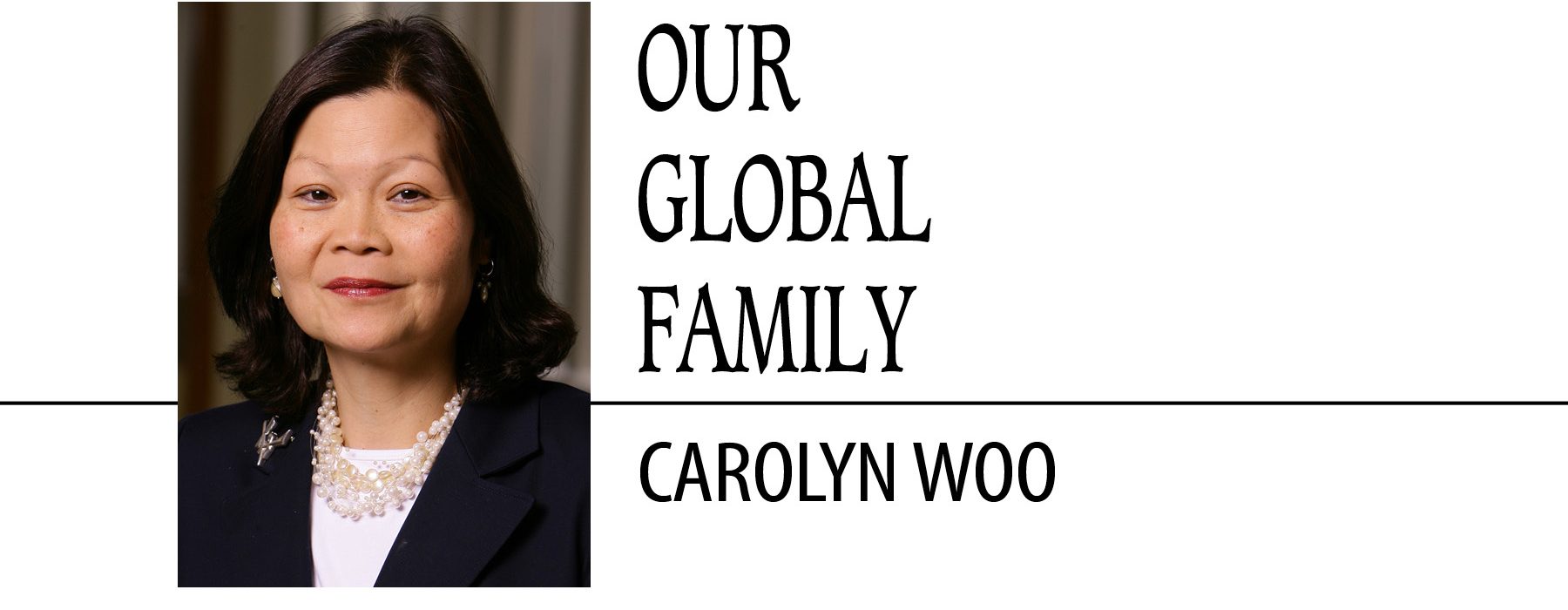January 16, 2020 // Perspective
Peace is the first greeting
On Jan. 18, 1968, St. Paul VI inaugurated the World Day of Peace and designated the first day of every year for this focus. This day is also devoted to the veneration of Mary, the mother of Jesus, and the Holy Name of Jesus.
Connecting the events, Pope Paul VI commented, “Those holy and loving religious remembrances must shed their light of goodness, wisdom and hope upon the prayer for, the meditation upon, and the fostering of the great and yearned-for gift of peace, of which the world has so much need.”
I had a glimpse of the lingering effect of war as a teenager. At a showing of “Tora! Tora! Tora!” a film about the bombing of Pearl Harbor, my mother sobbed uncontrollably. She was carried back to how her life was upended by World War II.
Her family left everything behind in mainland China to settle in Hong Kong. The respite was short-lived, as Hong Kong was soon occupied by the Japanese. Schooling and income came to an abrupt halt for the family. The days were punctured by sounds of execution at a nearby schoolyard commandeered as a Japanese military compound.
Though they hardly knew each other, my father and mother married to forestall an offer of marriage she received from a Japanese colonel. My dad was drafted to work for the Japanese as a naval architect. They fled to mainland China to stay ahead of the occupation and had two babies during that chaotic period.
Reluctantly, they abided by an agreement among their fellow refugees that any child whose cries endanger the safety of the group would be smothered. Fortunately, my brother and sister timed their cries to innocuous moments.
While my older relatives’ experiences of war became part of my memory and formed my affiliation with the refugees served by Catholic Relief Services, my own experience of war was something rather different.
What I witnessed was the speed and scope with which Hong Kong engaged and sought out Japanese businesses shortly after the war. By the 1960s, enmity was minimal as the Japanese provided for the Hong Kong people opportunities for technology transfer and outsourced manufacturing. Both countries prospered.
In my CRS work, I have seen the desire, capacity and actions for peace after destructive conflicts. In Cambodia, people wanted to direct their energies for economic development rather than hunting down the last leaders of the Khmer Rouge regime which, during a four-year reign, caused the death of 1.2 million to 2.8 million people.
Twenty-five years after its genocide, Rwanda continues its national strategy to replace the ethnic identities of Hutus and Tutsis with one common designation as Rwandans. On “60 Minutes,” a story recounts the collaboration between an Israeli information technology firm and the developer of the “City on the Hill” to create an advanced digital infrastructure and jobs for Palestinian residents.
The above does not necessarily and immediately foster happy endings of the storybook variety. There remain deep issues of trust, wariness among partners who are former enemies, resistance or repressive means.
What is achieved is fragile and gyrates through progression and regression. The efforts are more like new beginnings: willingness to try something different, energies for mutual gains rather than mutual destruction, different lens to view the “other,” and fraternity for our human yearning to be safe, to care for our children and to flourish.
Sending forth the Twelve Disciples to proclaim the good news, Jesus instructed, “As you enter a house, wish it peace.” (Mt 10:12) By Jesus’ command, peace is to be our first greeting and our first gift to those we engage in our personal, professional, political and international realms.
Carolyn Woo is the distinguished president’s fellow for global development at Purdue University. She served as the CEO and president of Catholic Relief Services from 2012 to 2016.
The best news. Delivered to your inbox.
Subscribe to our mailing list today.






